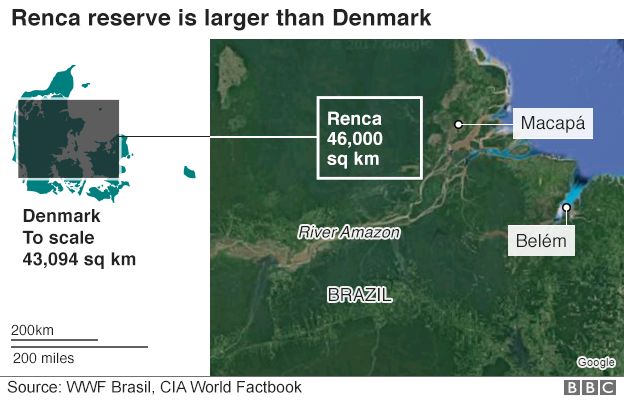A Brazilian court has suspended a government decree that would open up a vast natural reserve in the Amazon to commercial mining.
The area covers 46,000 sq km (17,800 sq miles) and is thought to be rich in gold, manganese and other minerals.
On Monday, following widespread criticism, the government revised the decree, prohibiting mining in conservation or indigenous areas.
The latest decision follows an outcry from activists and celebrities.
The federal court in the capital Brasilia said in a statement it was suspending "possible administrative acts based on the decree" signed by President Michel Temer.
The Renca reserve in the eastern Amazon is home to indigenous tribes and large areas of untouched forest. Its size is larger than Denmark and about 30% of it was to be opened to mining.
Brazilian president Michael Temer says this would boost the country's economy.

But opposition Senator Randolfe Rodrigues denounced the move as "the biggest attack on the Amazon in the last 50 years".
Maurício Voivodic, head of the conservation body WWF in Brazil, warned last month that mining in the area would lead to "demographic explosion, deforestation, the destruction of water resources, the loss of biodiversity and the creation of land conflict".
According to the WWF report, the main area of interest for copper and gold exploration is in one of the protected areas, the Biological Reserve of Maicuru.
There is also said to be gold in the Para State forest, which lies within the area.
The WWF says there is potential for conflict too in two indigenous reserves that are home to various ethnic communities living in relative isolation.
WWF's report said that a "gold rush in the region could create irreversible damage to these cultures".
"If the government insisted on opening up these areas for mining without discussing environmental safeguards it will have to deal with an international outcry."
